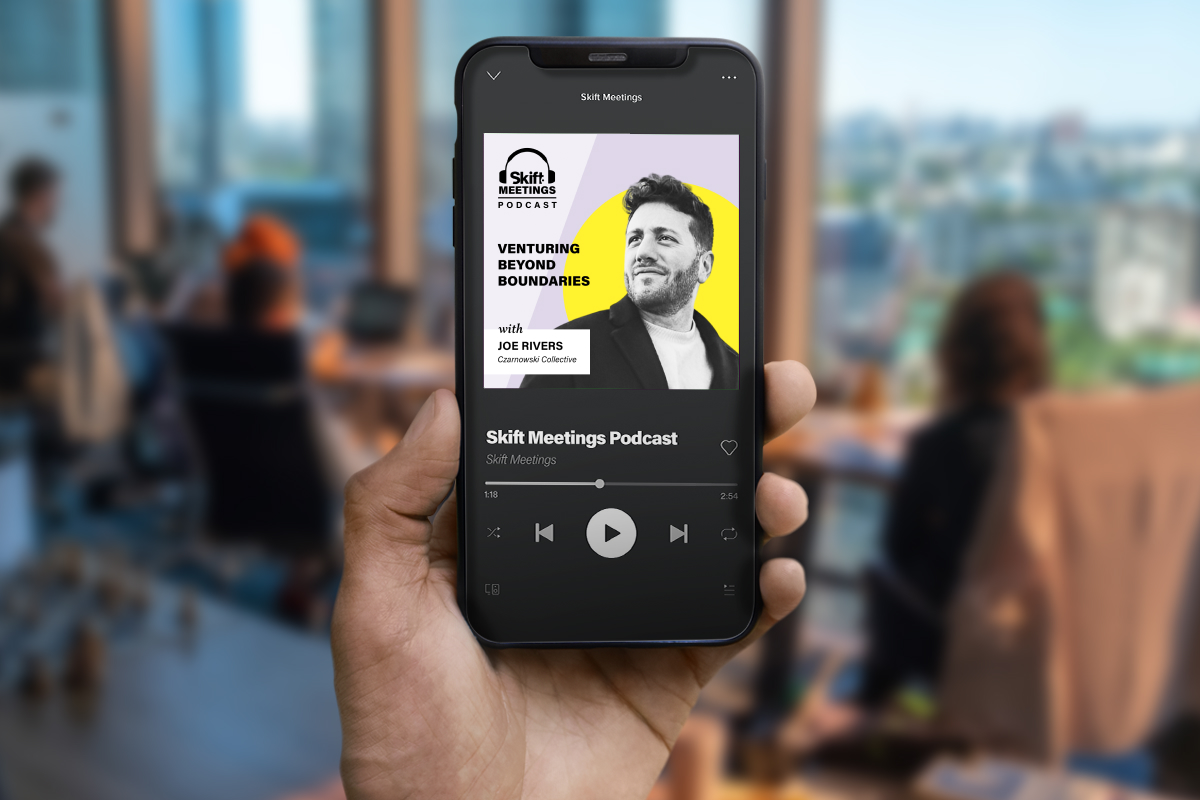Skift Take
Groups360 are making group travel booking easier for consumers and the hotels. The company urges planners to embrace new technology that increases efficiency, frees up resources, and ensures a direct connection between hotels and clients.
In this podcast episode, we’re joined by two guests, Tim Flors, chief customer officer at Groups360 and Oral Muir, vice president partnership development and global distribution at Hilton.
Groups360 works to make booking group travel easier for both the consumer and the hotel, of which they have several partners, including Muir’s Hilton. Before diving into the conversation, you’ll hear about Flors’ and Muir’s careers, their roles at their respective companies, and how they work together.
Subscribe to the Skift Meetings Podcast: Apple Podcasts | Spotify | Overcast | Pocket Casts | Google Podcasts | Amazon | RSS
Muir explains that global distribution for hotels is evolving and considered a value chain activity. He notes that hotels need to find a balance between sales from their direct channels and those where they need support from a third party. He explains that ideally, all of their sales would come directly from their own channels, but in a global world, that isn’t realistic. Knowing there is a need for external support, they work with partners that align with their strategy to complement their delivery efforts and achieve their goals.
Flors explains how Groups360 can assist a group in booking their hotel and selecting their destination thanks to their filtering process, which can aid discovery. He gives an example of this in practice. At the same time, Muir elaborates on what this means from a hotel’s perspective, including the fact that the detailed discovery and filtering process ensures that the hotels receive quality leads they know they should follow up on. Muir also notes that these process developments require a degree of change management so that teams fully understand and appreciate this technology’s role and its impact on their work and bookings.
In thinking about the RFP process and the idea of lead spam, Muir notes that there are likely no hotels that think they get too many RFPs, noting that he sees the term ‘lead spam’ as undifferentiated leads. Therefore, what hotels need is for the leads to be filtered so that they can determine which are quality and require action and follow-up. Flors notes that the number of leads one receives and responds to isn’t what one aims for. Instead, the goal is to be able to convert those leads into sales. Therefore, having access to filtered leads will likely result in the conversion the hotel and its sales team desire.
Flors believes that the bookings for group and small meetings will soon become fully automated, much like when we order a rideshare or food delivery, for example. He explains why he thinks this will be the case but also the developments in understanding attendee behaviors that will allow planners to ensure the highest level attendee experience, with Flors giving some examples of where this could go.
Muir believes that the future will be one in which systems allow for a more transparent, simple, and efficient world. Also, he urges planners to embrace this technology as by increasing efficiency, hotels and their staff can free up resources, including time, to ensure that they can engage with their customers differently. Flors’ also notes that by not trying these systems, as a planner, you aren’t challenging yourself to see what else is out there, which could help make things easier for you, saving you time and effort. Both touch on examples of previous technologies we have all embraced after previously thinking that it wouldn’t catch on, but we now couldn’t live without them.
This episode of the Event Manager Podcast was produced in partnership with Groups360.
Catch the full episode on your favorite podcast app. Want more of the Event Manager Podcast? Just hit that subscribe button to ensure new episodes land in your feed when they drop!





